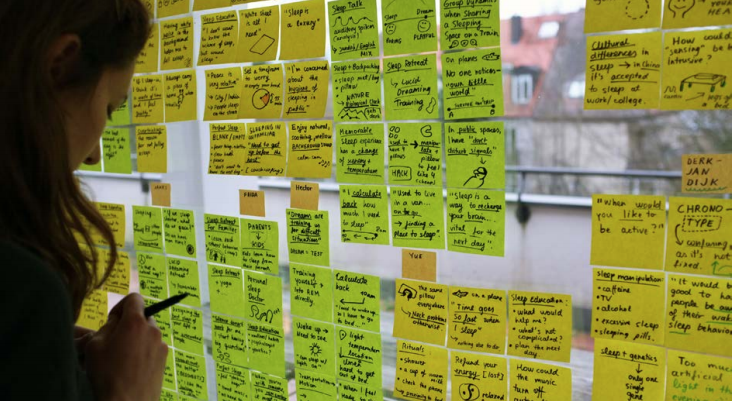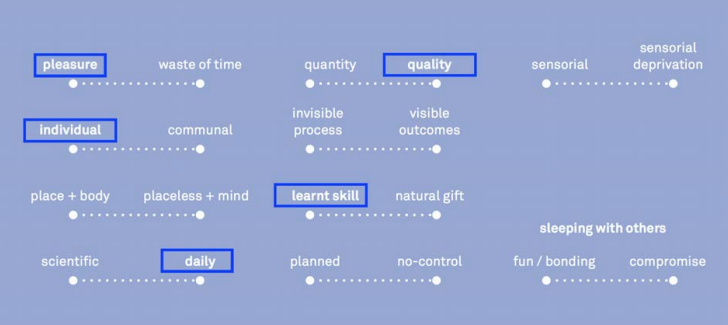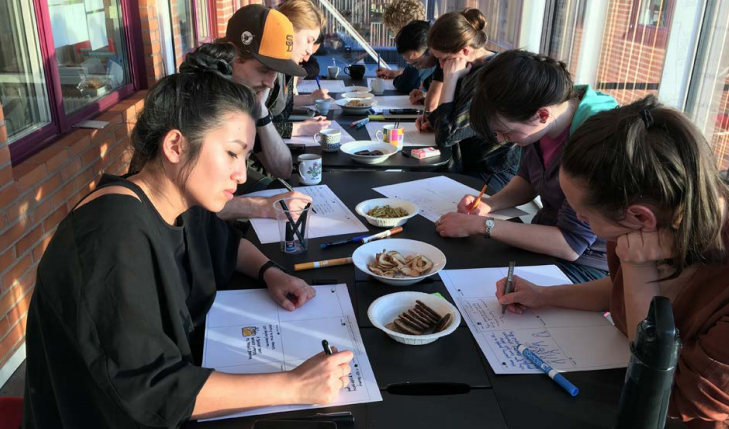Final result:
The goal of this project is to de-stigmatize the field of sleep health, introduce positivity around it and inspire thinking that sleep helps people reach their full potential.
Challenge
““Sleep is a word of mouth,
there’s no formal education””
““If I sleep in, I think it’s a
waste of time and I feel
guilty””
We practice sleep every night. Yet few of us have truly mastered it. But what does it mean mastering sleep? Of course, we all have nights, or even weeks of bad sleep. Yet do we know why? Sleep is complex and can be confusing. That’s why hearing someone say “Oh, I’m so tired” has become a norm, almost a social expectation.
Even though we spend 1/3 of our lives sleeping, the absence of sleep education leads to the majority of the population being unaware of their individual sleep preferences and the importance of sleep. This project is aimed at envisioning how we might provide people with means to learn and maintain preventative sleep health habits (not curing particular sleep disorders).



Inspiration and Method
What if sleep was a skill?
““There is nowhere to go
in Sweden [to have your
sleep analysed]. General
physicians don’t have much
knowledge... There are a
few Sleep Labs, but not in
Umeå. However, they focus
on sleep disorders”.”
“The School of Sleep” is a Master’s in Interaction Design thesis project aimed at envisioning how we might provide people with means to learn and maintain preventative sleep health habits. The aim of the project is to improve the sleep health of urban dwellers by designing personal, pleasant and guided rituals sleep-wake, eventually leading to a happier overall life.
Sleep has become a luxury in a contemporary society, especially in the urban environment. However, there is an increasing interest in public to better understand and improve the way we sleep. A growing number of sleep tracking tools indicates that people self-initiate learning more about their nocturnal practises. Nonetheless, the lack of collected data interpretation or tailored actionable steps often causes a discontinuation of using such services.
In order to familiarise myself with the field of sleep health, user-centred design methods were used together with various sleep researchers, as well as potential service users. A combination of fundamental sleep research with the more recent sleep technology spanned across the biological, social, material and cultural nature of sleep. The project was addressed using preventative, positive and proactive methods to arrive at the final result.
Result
The final result is a service design concept “The School of Sleep”, which consists of a promotional website, where users can arrange their first one-on-one sleep consultation and have their current state analysed. During a course of the first consultation, one achievable sleep goal is picked and agreed on between two parties. Based on that, a physical curated Sleep Kit is delivered to their doorstep, with a variety of contents to prompt and form sleep rituals. Alongside, personalised sleep coaching via messages with one’s Sleep Coach is there to guide and motivate throughout the programme.
“How might we provide
people with means to learn and maintain
preventative sleep health habits? How might
we make sleep health habits positive and fun,
an activity to look forward to?”





